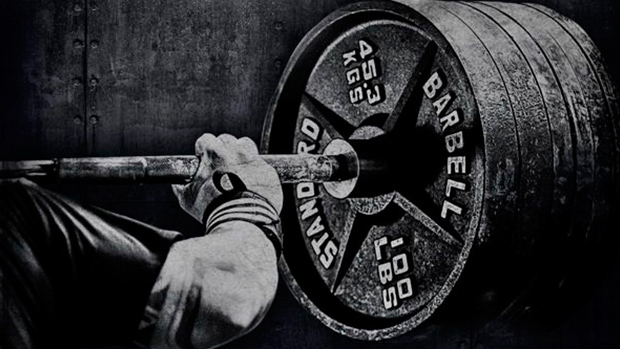This post isn’t intended to shame you into working out, or for eating more than you ought, or overindulging in what is meant to be a delicacy as if it were a bowl of rice. I’m sure you feel as uncomfortable reading that as I do writing it, as these things already have major cultural stigmas attached to them. Instead of just showering you with guilt, social exile, or doom and gloom health style, I hope to provide an encouragement that might lead to something lasting, something that can actually help the process of change as opposed to just angrily and self-righteously telling you to stop (because it’s that easy).
For context, I used to struggle with weight control. I played basketball in high school until I injured my knee and could no longer play for the next several years. I played on a team where we won by outlasting the other team (read: conditioning until you die). Post injury and sickness, I became stationary, doing independent studies, staying at home and playing World of Warcraft all day. I went from 170lbs when playing basketball to 225lbs at my heaviest.
This struggle continued through my junior year of high school to my junior year of college. I managed to get a hold of my weight at 190lbs and slowly lowered it down to 165lbs. Since then, I’ve found one of my favorite hobbies in weight lifting. The great part about weight lifting is probably the ice cream, and the best part of the journey is the knowledge and discipline I’ve gained about my body’s metabolic system.
This did not occur because one day I magically willed to stop drinking soda, refused getting a second or third plate of food at the school cafeteria, or abolished eating pizza. The ability to do this actually came from a few years of research and musing: research on the human metabolism and weight lifting, and musing on some of Paul’s writings and thinking, “Why would he even include this? Why include this specific example?” The combination was monumental.
“Do you not know that all the runners in a stadium compete, but only one receives the prize? So run to win. 25 Each competitor must exercise self-control in everything. They do it to receive a perishable crown, but we an imperishable one. 26 So I do not run uncertainly or box like one who hits only air. 27 Instead I subdue my body and make it my slave, so that after preaching to others I myself will not be disqualified.” – 1 Cor. 9:24-27
“All things are lawful for me, but not all things are profitable. All things are lawful for me, but I will not be mastered by anything.” 1 Cor. 6:12
These verses are not necessarily moral imperatives to exercise, but they do reveal a certain respect for competent athletes. Paul compares himself and even models his own journey after that of a hypothetical athlete. The theme he focuses on is discipline, the ability to have complete and utter mastery over your body. This stood out to me because it was something I so thoroughly lacked – I’d eat anything that was mildly appealing, I’d wait till the last second to get my course work done for school, ultimately relying on my natural talent to accomplish things. But just as our natural talent to obey God is concerned, my natural talent to be self-disciplined was not working out so well.
Around my sophomore year in college, I had a friend on the floor I lived on introduce me to weight lifting. However, he set me up with two months of cardio and wouldn’t make a weight-lifting program for me until I proved I could discipline myself to be consistent. Over time, I became consistent, going three days a week. He also helped me learn to control my food intake a little better. Teaching me what was going to help me accomplish my goal and what would not, defining things not by good or bad necessarily. This lead to me saying no to some things I usually would have said yes to. After the two months had passed, I began my journey into weight lifting.
Fast forward two and a half years: I went back to school this past fall after taking a year and a half off. I had remained consistent and was now lifting four times a week. I started to intuitively understand my food choices and had more freedom to mix and match what I ate. I was able to be very precise with how I spent my time and how I organized my goals. This led to the best academic year of my scholastic career, pre-college included. All of this, I believe, can be traced back to the first steps I took in starting to get involved in fitness and subsequently started musing about Paul’s view of the athlete.
Fitness is not first and foremost about beauty standards, and can actually be detrimental if that is your only concern. Go watch a powerlifting or strongman competition, none of those peoples’ primary goal is to impress others by their asthetic. They have goals intrinsic to what they want to do. For them, it’s about being the strongest people in the world. For me, I wanted the discipline to do my work well before its deadline, go to sleep at reasonable hours, and feel like I had control over myself and was not a slave to “but I don’t want to.”
It worked. I know how to be lenient, and I know how to be strict. I know how to set a goal and actively push toward it, making sacrifices where necessary and backing off where appropriate. But most of all, I know all the planning it’s taken for me to get to this point—all the sweat, soreness, blood at times, good and bad workouts, and purely painful grinding through the last rep on a set of deadlifts. Weight lifting enlightened me to the grind that is going to be loving my enemy in real, non-hypothetical, speech. It’s taught me that discipline isn’t something cooked up out of innate talent, but something that is fostered and fed to grow.
Weight lifting has done great things for my physical and mental health. It also pushed me further than I thought I could go, and disciplined me to push trough failure and triumph alike, not being discouraged and not getting complacent. These attributes aren’t limited to weight lifting, but are the very attributes that Paul admired in the athlete that he liked to compare himself to.
Learning to master your body to the point that when your muscles say, “I can’t go any further,” you respond with, “I can, and you will,” pays off immensely when you learn how to apply the same attitude to other areas of your life. Whether your discipline in work, self-care, or most importantly, loving your neighbor and your enemies, it’s a level of discipline you will be glad you cultivated when you had the chance. It’s as good for your body as it is for your soul.





Leave a Reply
Your email is safe with us.